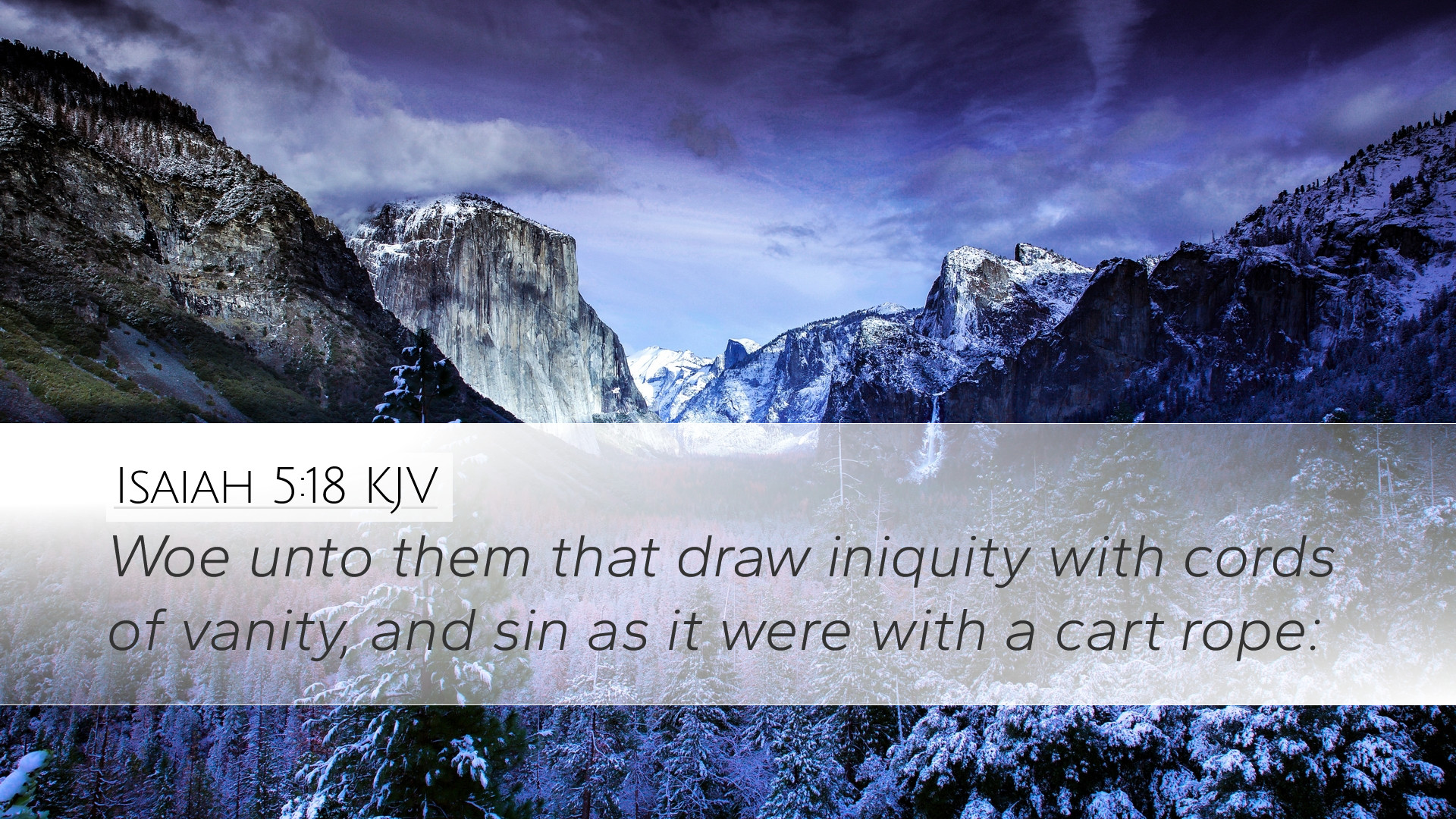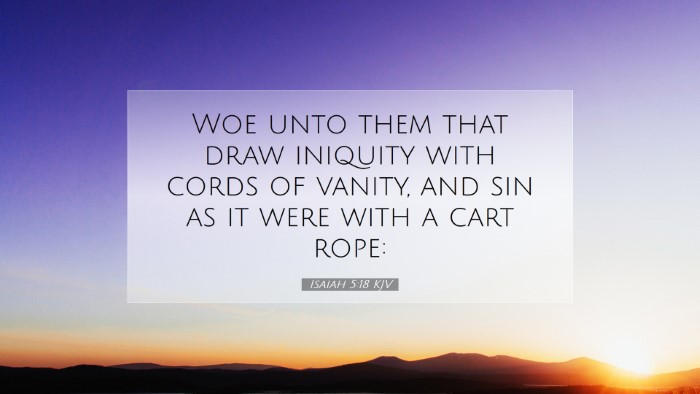Bible Commentary on Isaiah 5:18
Isaiah 5:18 (KJV) - "Woe unto them that draw iniquity with cords of vanity, and sin as it were with a cart rope."
Introduction
The verse stands as a powerful warning against the deliberate and persistent pursuit of sin. The imagery used by the Prophet Isaiah illustrates the ease with which individuals can become ensnared in iniquity, drawing it to themselves as one might pull a cart with strong ropes. This commentary seeks to unpack the significant theological implications of Isaiah 5:18 through the insights of various public domain commentaries.
Contextual Overview
The broader context of Isaiah chapter 5 is a lamentation for the moral state of Israel, described vividly through various metaphors. Isaiah speaks of the consequences of Israel’s rebellion against God, employing vivid imagery that invokes both the natural and social order. In this chapter, the prophet outlines various 'woes' directed at those who have strayed from divine commandments.
Thematic Analysis
In Isaiah 5:18, the prophet exposes the systematic approach to sin adopted by the people of Israel. The cords of vanity symbolize the foolish pride and arrogance that lead individuals to disregard moral law.
1. Cords of Vanity
Matthew Henry remarks that "cords of vanity" refer to the deceptive allure of sin that draws people in. This concept indicates that the motivation behind sinful behavior can often stem from pride and self-deception, leading to a rejection of biblical truths.
2. Sin as a Cart Rope
Adam Clarke expands on this metaphor, clarifying that individuals may rationalize their sins as they would the burdens laid on a cart—making the choice to carry the weight of iniquity willingly. This imagery conveys not just the act of sinning but a systemic inclination toward indulgence and an almost routine acceptance of sin in their lives.
Theological Implications
Isaiah 5:18 serves as a sobering reminder of the consequences of living in disobedience to God's commands. The act of drawing iniquity attests to the agency individuals exercise in choosing sin.
1. The Danger of Normalizing Sin
Barnes notes that the normalization of sin through persistent engagement leads to a hardening of the heart. When sin becomes routine, a person may no longer perceive it as offensive to God, leading to apostasy.
2. Accountability and Divine Judgment
This verse emphasizes the idea of accountability. Through the warning of woe, Isaiah conveys the impending judgment that awaits those who persist in their iniquities. Proper exegesis highlights that God’s justice will ultimately confront such actions, regardless of societal acceptance.
Practical Applications for Today
For pastors, students, and theologians, Isaiah 5:18 serves as a crucial text for understanding the nature of sin and personal responsibility before God. The examination of one's life in the context of humility and accountability becomes paramount.
-
1. Self-Examination:
Believers are encouraged to engage in regular self-assessment, asking if they have inadvertently normalized sin in their lives.
-
2. Preaching Conviction:
Pastors should remind congregants of the seriousness of sin, urging them to reject the cords of vanity that lead them astray.
-
3. The Importance of Community:
Creating an environment where accountability is encouraged fosters spiritual growth and resilience against sin.
Conclusion
Isaiah 5:18 encapsulates a powerful message about the dangers of drawing iniquity into one’s life. Through the insights from public domain commentaries, we glean a deeper understanding of this text, its implications, and how it applies to our contemporary Christian walk. Ultimately, we are called to forsake the cords of vanity and live in a manner that reflects the righteousness of God.


